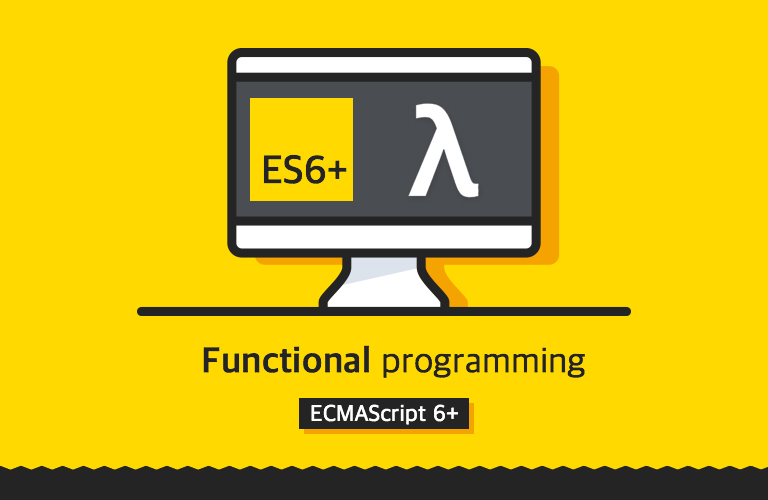
이 글은 유인동님의 함수형 프로그래밍 강의내용을 정리한 글입니다.
L.map, map, take 비동기 동시성으로 만들기
L.map, map, take 비동기적으로 만들려면 각 함수 내부 구현에서 프로미스를 거르는 작업을 추가해주면 된다.
go([Promise.resolve(1), Promise.resolve(2), Promise.resolve(3)],
L.map(a => a + 10),
take(2),
console.log);
// 출력: ["[object Promise]10", "[object Promise]10"]기존의 L.map, map, take 에서는 비동기적으로(Promise) 동작하지 않는다.
- 기존 L.map
// 기존 L.map 함수
L.map = curry(function* (f, iter) {
for (const a of iter) {
yield f(a);
}
});
// 프로미스값을 거르는 go1함수를 활용한 L.map
const go1 = (a, f) => a instanceof Promise ? a.then(f) : f(a);
L.map = curry(function* (f, iter) {
for (const a of iter) {
yield go1(a, f); // go1함수에서 프로미스면 풀어서 값을 만든다.
}
});
// 변경 전 take
const take = curry((l, iter) => {
let res = [];
iter = iter[Symbol.iterator]();
let cur;
while (!(cur = iter.next()).done) {
const a = cur.value;
res.push(a);
if (res.length == l) return res;
}
return res;
});
// 변경 후 take
const take = curry((l, iter) => {
let res = [];
iter = iter[Symbol.iterator]();
return function recur(){ // 재귀함수를 반환한다.
let cur;
while (!(cur = iter.next()).done) {
const a = cur.value;
if(a instanceof Promise) return a.then( a => {
res.push(a);
if (res.length == l) return res
return recur();
});
res.push(a);
if (res.length == l) return res;
}
return res;
} ();
});재귀 함수를 리턴하는 이유는 while문에서 프로미스일 때 then을 리턴하기 때문에 반복문이 제대로 돌수 없기 때문이다. 재귀적으로 동작하는 부분을 재귀함수로 감싸서 리턴하는식으로 구현하고 내부는 재귀적으로 호출하는식으로 구현한다.
다시 찍어보면
go([Promise.resolve(1), Promise.resolve(2), Promise.resolve(3)],
L.map(a => a + 10),
take(2),
console.log); // [11, 12]- map 함수
const map = curry(pipe(L.map, takeAll));map함수는 L.map과 take 함수로 구현했기 때문에 비동기적으로 잘 작동된다.
L.filter, filter 를 비동기 동시성으로 만들기
Kleisli Composition을 활용하여 L.filter, filter 함수에 프로미스를 받을 수 있도록 할 수 있다.
go구문에서 앞에서 오는 값이 Promise가 되어서 오거나, filter가 내뱉는 값이 Promise일때, 어떻게 하면 지연평가도 되면서 비동기 동시성을 모두 지원할 수 있는지 알아보자.
go(
[1, 2, 3, 4, 5, 6],
L.map(a => Promise.resolve(a * a)),
L.filter(a => a % 2),
take(2),
console.log
);
// 출력: []L.filter함수에서 들어오는 값이 프로미스이기 때문에 제대로 평가 되지 않는다.
// 변견 전 L.filter
L.filter = curry(function* (f, iter) {
for (const a of iter) {
if (f(a)) yield a;
}
})
// 변견 후 L.filter
const go1 = (a, f) => a instanceof Promise ? a.then(f) : f(a);
const nop = Symbol('nop'); //reject에 아무런 작업을 하지 않기위한 값으로써의 nop 구분자.
L.filter = curry(function* (f, iter){
for(const a of iter){
const b = go1(a, f);
if(b instanceof Promise) yield b.then(b => b ? a : Promise.reject(nop)); // b가 false일 때 다음 작업이 진행되지 않도록 하기위함.
else if(b) yield a;
}
});L.filter에서 nop 이라는 reject 를 반환 받았을 때 take 함수에서 어떻게 처리해야할지를 추가 구현해줘야한다.
const take = curry((l, iter) => {
let res = [];
iter = iter[Symbol.iterator]();
return function recur(){
let cur;
while(!(cur = iter.next()).done){
const a = cur.value;
if(a instanceof Promise){
return a
.then(a => (res.push(a), res).length == l ? res : recur())
.catch(e => e == nop ? recur() : Promise.reject(e)); // 추가!
}
res.push(a);
if(res.length == l) return res;
}
return res;
}();
});.catch(e => e == nop ? recur() : Promise.reject(e)) e가 nop이면 다시 재귀를 돌려서 다음을 시도하고 만약 nop이 아닌 다른 에러이면 error를 뱉는다.
프로미스를 지원하는 reduce 만들기
go([1, 2, 3, 4],
L.map(a => Promise.resolve(a * a)),
L.filter(a => Promise.resolve(a % 2)),
reduce(add)
console.log);
// 기존 reduce
const reduce = curry((f, acc, iter) => {
if (!iter) {
iter = acc[Symbol.iterator]();
acc = iter.next().value;
} else {
iter = iter[Symbol.iterator]();
}
return go1(acc, function recur(acc) {
let cur;
while (!(cur = iter.next()).done) {
const a = cur.value;
acc = f(acc, a); /* 문제가 되는 구문 */
if (acc instanceof Promise) return acc.then(recur);
}
return acc;
});
});reduce의 "acc = f(acc, a)"에 전달되는 값들이 1과 Promise를 전달하는 식으로 동작하기 때문에 정상적으로 동작하지 못한다. 명확하게 잘 동작하도록 바꿔보자.
const reduceF = (acc, a, f) =>
a instanceof Promise ?
a.then(a => f(acc, a), e => e == nop ?
acc :
Promise.reject(e)) :
f(acc, a);
const reduce = curry((f, acc, iter) => {
if (!iter) {
iter = acc[Symbol.iterator]();
acc = iter.next().value;
} else {
iter = iter[Symbol.iterator]();
}
return go1(acc, function recur(acc) {
let cur;
while (!(cur = iter.next()).done) {
acc = reduceF(acc, cur.value, f); /* reduceF로 받기 */
if (acc instanceof Promise) return acc.then(recur);
}
return acc;
});
});